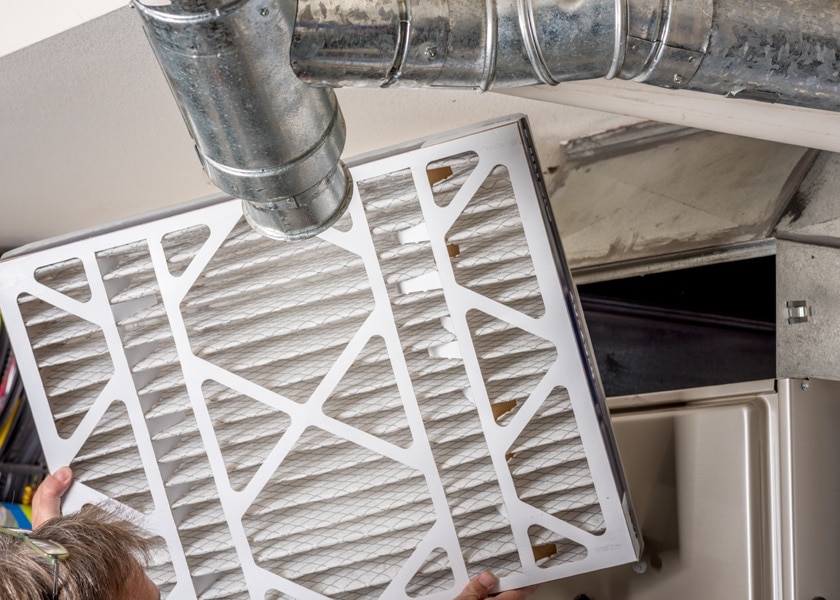Why Clogged Air Filters Can Cause Big Problems for Your HVAC System

When was the last time you checked your air filter? If you’re like most homeowners or business owners, it’s probably not at the top of your to-do list. However, keeping a clean air filter is one of the simplest—and most important—ways to protect your HVAC system and improve the air quality in your home or office.
Air filters play two essential roles. First, they trap dust, pollen, pet dander, and other airborne pollutants, helping you breathe cleaner, healthier air. Second, they keep dust and debris from getting inside your furnace or air conditioner, where buildup could cause serious damage. If your air filter becomes clogged, it can force your HVAC system to work harder than it should, leading to higher energy bills, uneven heating or cooling, and even a complete system shutdown.
How a Clogged Air Filter Affects Your System
When dust and debris build up on your air filter, airflow through your HVAC system is restricted. That might not sound like a big deal at first, but reduced airflow makes your system work overtime just to maintain a normal temperature. This extra strain not only decreases efficiency—it can also cause uncomfortable temperature swings throughout your home or office.
You might notice that some rooms feel cooler than others, or that your air conditioner runs constantly but never seems to quite get the job done. Meanwhile, your energy bills start creeping higher without much explanation. These are common signs that your air filter may be overdue for a change.
Another issue is indoor air quality. A clogged filter can no longer trap contaminants effectively. Instead of being captured and removed, dust, allergens, and other particles are pushed back into the air you breathe. If you or anyone in your household suffers from allergies, asthma, or respiratory issues, a dirty air filter can make symptoms much worse.
Serious Risks from Ignoring Air Filter Maintenance
Ignoring your air filter for too long doesn’t just lead to poor airflow and higher energy costs—it can cause real damage to your HVAC equipment. When airflow is restricted, components like the blower motor or heat exchanger are forced to work harder and may overheat or fail prematurely.
Repairs caused by dirty air filters can be expensive, and in some cases, neglect can lead to full system replacement long before you would normally expect. For something as simple as swapping out a filter every few months, it’s not worth the risk.
At The Smith Service Company, we’ve seen firsthand how clogged filters can create major problems for homeowners. From emergency AC repairs during the hottest days of summer to furnace failures during a cold snap, a neglected air filter often plays a bigger role than most people realize.
How Often Should You Change Your Air Filter?
As a general rule, most standard filters should be changed every 3 to 6 months. However, several factors can affect how often you should replace yours. If you have pets, suffer from allergies, or live in a dusty environment, you may need to change your filter more frequently.
It’s also important to follow your manufacturer’s recommendations for your specific HVAC system. Some high-efficiency systems or specialty filters may have different guidelines. If you’re ever unsure, it’s better to err on the side of caution and change your filter more often.
A clean filter is an easy, inexpensive way to help your HVAC system run more efficiently, extend its lifespan, and improve indoor air quality in your Tonganoxie or Lawrence, KS home.
Need Help with Indoor Air Quality?
If you have questions about improving indoor air quality in Tonganoxie, KS or checking the air quality in your Lawrence, KS home, our team is here to help. We can inspect your system, recommend the right filters, and provide maintenance services to keep your home comfortable year-round.
Call us today at 785-594-8800 or request service online to schedule your HVAC maintenance or to learn more about how clean air filters can make a big difference for your home and family.